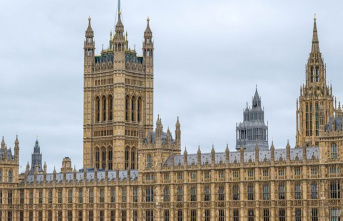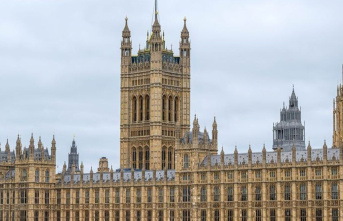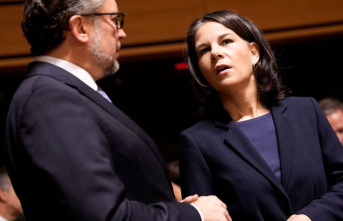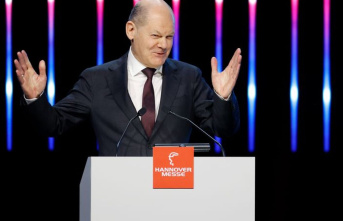In order to cushion the high energy prices, price caps for electricity and gas will apply in the coming year. The Bundestag gave the green light for the plans of the traffic light government on Thursday. The Federal Council now has to finally deal with it. An overview:
Officially, the measure should come into force in March, and there should also be retrospective relief for January and February. This had been demanded from many sides - at the same time the suppliers had emphasized that the changeover at the turn of the year was not possible. This is how this interim solution came about.
According to the draft law, the price brake for grid-bound natural gas and heat will apply for the whole of 2023; According to the Ministry of Economic Affairs, an extension until April 2024 is "planned, but a separate decision would have to be made". Households and smaller companies with an annual consumption of less than 1.5 million kilowatt hours should get 80 percent of their previous year's consumption for twelve cents per kilowatt hour during this period. A capped gross price of 9.5 cents applies to district heating customers - also for 80 percent of consumption. The contractually agreed prices are due for consumption that is not capped; so there is a high incentive to save.
The price brake automatically reduces the monthly deduction for prices above the cap. The state pays the difference. According to calculations by comparison portals, the average gas price is currently a good 17 cents. The annual statement for 2023 will show how high the consumption actually was.
In the case of central heating, landlords or the property management company must pass on the relief via the utility bill. If the tenant's advance payments for operating costs have already been increased or agreed for the first time this year due to rising costs, the advance payments must be adjusted "to an appropriate level". Landlords also have a duty to inform tenants.
The electricity price brake works in the same way as the gas price brake. Here, too, the relief for January and February should be credited retrospectively in March. The electricity price for private households and small companies that consume less than 30,000 kilowatt hours of electricity per year should be capped at 40 cents per kilowatt hour gross - gross means including taxes, levies, levies and network charges. Here, too, a basic requirement of 80 percent of the previous year's consumption applies.
According to comparison portals, the electricity price is currently around 43 cents per kilowatt hour on average, plus a basic price. So if you pay more than 40 cents from January, you will benefit from lower discounts during the year. The actual consumption and possible savings are then stated on the annual statement.
Industry and large customers with a gas consumption of 1.5 million kilowatt hours per year will also benefit from January: Gas prices will be capped at 7 cents and for heat at 7.5 cents, for 70 percent of gas consumption. This industrial gas price brake applies to around 25,000 companies and around 1,900 hospitals.
When it comes to electricity, there is a cap of 13 cents for 70 percent of consumption for everyone who uses more than 30,000 kilowatt hours a year. This is the guaranteed net working price, taxes, duties and levies are also incurred.
The costs of the price brake for natural gas and heat are estimated at 56 billion euros, of which a good 40 billion euros will be attributable to the 2023 budget year. The costs are to be borne by the Economic Stabilization Fund (WSF). The electricity price brake is intended to be financed to a large extent by skimming off part of the profits from electricity producers, which would not have existed without the energy crisis. Until that takes effect, the WSF will step in for the interim financing: 43 billion euros are planned.
No, because only the rise in prices will be dampened: "The price brakes are intended to cushion the rising energy costs and the most serious consequences for consumers and companies," says the law. Consumer advocates point out that gas prices can still be expected to double in 2023 compared to 2021 – i.e. before the Ukraine war.
The federal government therefore also provides hardship regulations for households, companies and social institutions. The traffic light factions have also agreed on a fund of 1.8 billion euros for households that heat with pellets or oil.












